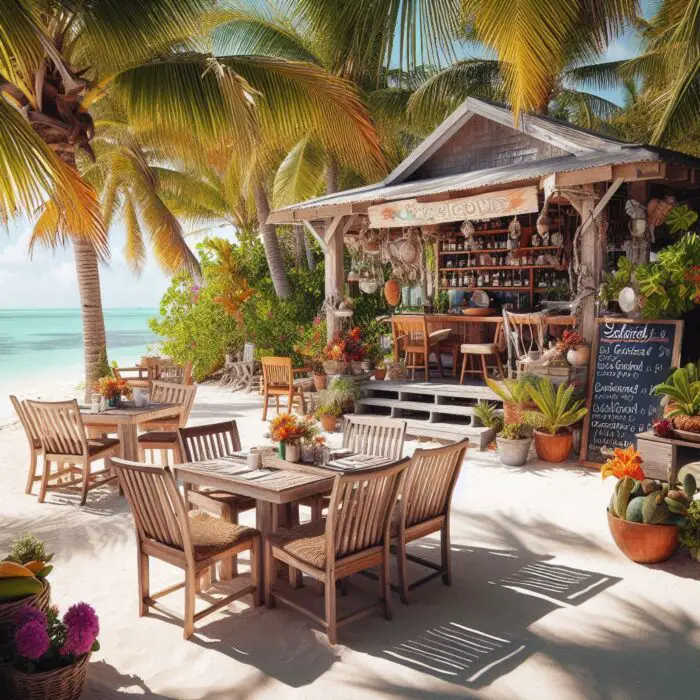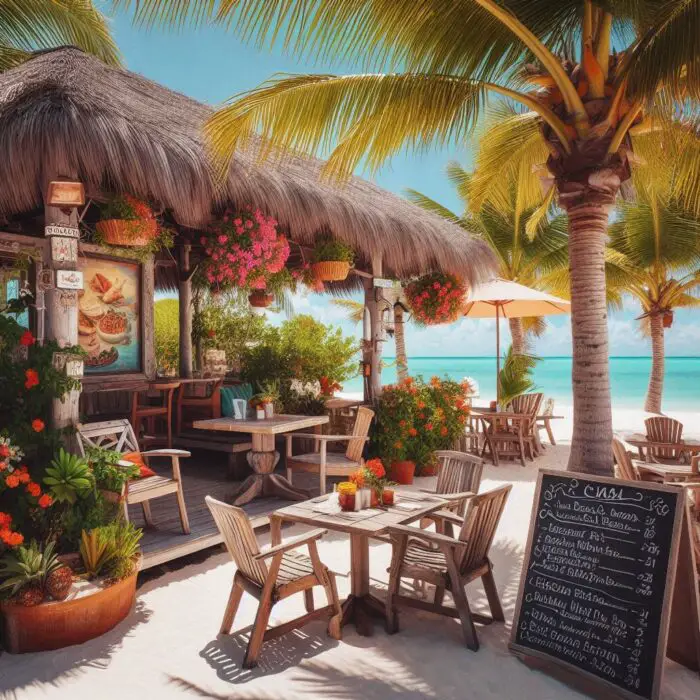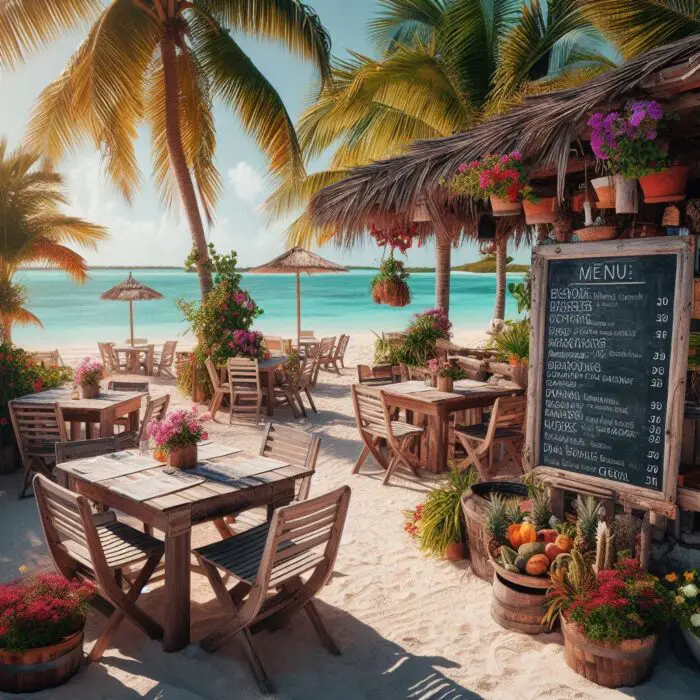
Introduction
The Bahamas is known for its stunning beaches, vibrant culture, and rich history, but a lesser-known treasure is its burgeoning farm-to-table food movement. Across the islands, there’s a growing emphasis on sustainability, local sourcing, and reducing the environmental footprint of food production.
Bahamian chefs and local farmers are working hand in hand to create a cuisine that’s fresh, flavorful, and rooted in the land and sea.
In this article, we’ll explore how Bahamian food tours are embracing sustainable, farm-to-table dining, offering tourists a chance to savor the freshest local ingredients while learning about the islands’ commitment to preserving their natural resources.
The Rise of Farm-to-Table in the Bahamas
Farm-to-table dining focuses on serving locally sourced ingredients, often directly from local farms or fisheries.
In the Bahamas, this movement is gaining momentum as chefs and restaurateurs prioritize sustainability, seasonal ingredients, and supporting local farmers.
While seafood has always been a staple of Bahamian cuisine, there is a growing emphasis on incorporating locally grown fruits, vegetables, and herbs into the menu.
-
Fresh Seafood: From Nassau to the Out Islands, sustainable seafood practices are a key part of the farm-to-table movement. Conch, lobster, snapper, and grouper are often caught in nearby waters, ensuring that diners experience seafood at its peak freshness.
-
Local Produce: The Bahamas’ warm climate and fertile soil are ideal for growing a variety of tropical fruits and vegetables. Local farms are increasingly producing organic options such as papayas, mangos, guavas, tomatoes, and greens that are incorporated into Bahamian cuisine.
1. Nassau: The Capital of Sustainable Dining
As the most populated city in the Bahamas, Nassau leads the way in sustainable and local food practices.

Several restaurants and food tours focus on showcasing Bahamian ingredients in their freshest form. Nassau’s proximity to local farms and fisheries allows its chefs to create dishes that embody the island’s natural bounty.
-
Must-Visit Spot: Graycliff Restaurant
Graycliff is a historic Nassau landmark that sources much of its produce and seafood locally. Their menu includes fresh conch salad, local fish, and seasonal vegetables, providing an upscale farm-to-table experience. -
Food Tour Highlight: Nassau’s food tours often include stops at local markets where guests can meet farmers and fishermen and sample produce fresh from the fields or ocean.
2. Eleuthera: Pineapple Farms and Organic Agriculture
Eleuthera, known as the “Pineapple Capital of the World,” is a key player in the farm-to-table movement. The island is home to small-scale farms producing some of the sweetest pineapples you’ll ever taste, alongside other fruits and organic produce.
Food tours in Eleuthera offer an immersive experience where visitors can visit pineapple farms and organic gardens, learning about the sustainable practices that help local agriculture thrive.
- Farm-to-Table Highlight: The Eleuthera Pineapple Festival celebrates the island’s signature fruit and highlights the importance of sustainable farming in the community. Guests can enjoy fresh pineapple dishes, attend farm tours, and learn about organic agriculture.
3. Exuma: Sea-to-Table Experiences
In Exuma, food tours focus on the island’s sustainable seafood practices. The clear, warm waters surrounding Exuma provide abundant marine life, making it a haven for lovers of fresh seafood.
Exuma’s chefs work closely with local fishermen to ensure that seafood is sourced responsibly, maintaining the island’s delicate ecosystem.
- Farm-to-Table Highlight: At several Exuma resorts and restaurants, seafood is prepared right on the beach as part of a “sea-to-table” experience. Guests can watch fishermen bring in their daily catch and enjoy freshly grilled fish, lobster, or conch paired with locally grown vegetables.
4. Andros: Agriculture and Foraging
Andros Island, the largest in the Bahamas, has a rich tradition of agriculture and foraging. Its wild, unspoiled landscapes provide fertile ground for growing native crops, while its vast forests offer foraged herbs and medicinal plants that have been used by locals for generations.
On food tours in Andros, visitors can explore farms, try traditional Bahamian dishes prepared with fresh ingredients, and learn about the importance of foraging to the island’s culinary culture.
- Farm-to-Table Highlight: Andros’s farm-to-table tours often include a visit to local farms where visitors can pick their fruits and vegetables, followed by a meal featuring these freshly harvested ingredients.
Chart: Farm-to-Table Highlights in the Bahamas
| Island | Local Ingredients | Sustainable Practices | Unique Experiences |
|---|---|---|---|
| Nassau | Fresh seafood, seasonal produce | Emphasis on local sourcing at restaurants | Market tours with local farmers and fishers |
| Eleuthera | Pineapples, organic fruits | Small-scale organic farming | Pineapple farm tours and fresh tastings |
| Exuma | Lobster, conch, snapper | Sea-to-table dining with local fishermen | Beachside seafood grilling |
| Andros | Native herbs, fruits, vegetables | Foraging for traditional ingredients | Farm visits and hands-on agricultural tours |
FAQ: Farm-to-Table Food Tours in the Bahamas
1. What makes farm-to-table dining in the Bahamas special?
Farm-to-table dining in the Bahamas is unique because it focuses on local ingredients that are often sourced directly from the island’s farms and waters.

The Bahamas’ emphasis on sustainability ensures that diners are getting the freshest, most environmentally friendly food available.
2. Are farm-to-table food tours suitable for vegetarians?
Yes! While seafood is a major part of Bahamian cuisine, many food tours include a focus on locally grown fruits and vegetables. Vegetarian-friendly dishes like fresh salads, fruit-based desserts, and plant-based Bahamian sides are available.
3. What can I expect on a farm-to-table food tour in the Bahamas?
Guests can expect to visit local farms, fisheries, and markets where they can see firsthand how ingredients are sourced and prepared. Many tours include tastings of fresh produce, seafood, and traditional Bahamian dishes made with local ingredients.
4. How does farm-to-table dining benefit the Bahamas?
By supporting local farmers and fishermen, the farm-to-table movement helps to boost the Bahamian economy and reduce the environmental impact of imported food.
It also encourages sustainable farming and fishing practices, preserving the islands’ natural resources for future generations.
5. What is the best time of year for farm-to-table food tours?
Food tours are available year-round, but the best time to experience the freshest produce is during the winter months when the Bahamian climate is cooler and more conducive to agriculture.
Conclusion
Farm-to-table dining in the Bahamas offers a fresh and sustainable approach to exploring the islands’ culinary culture.
From Nassau’s seafood markets to Eleuthera’s pineapple farms and Andros’s wild foraging traditions, each island offers a unique glimpse into how local ingredients are harvested and prepared.
These food tours not only allow travelers to savor the freshest flavors but also help support local farmers, fishermen, and the environment.
Book a trip with Expedia
For anyone looking to dive deeper into Bahamian cuisine, a farm-to-table experience is the perfect way to enjoy the islands’ natural bounty while contributing to a more sustainable future.
Flavors of the island. Introduction When most travelers think of the Bahamas, the bustling capital of Read more
Lots of food and drinks on the island. Introduction The Bahamas is a paradise known not Read more
Plenty of seafood dishes on the island.IntroductionThe Bahamas, an archipelago of over 700 islands and cays, Read more
Food and drinks on a table with a view of the island. Introduction Nassau, the vibrant Read more
Author
-

Benedict Ohia is a seasoned chef with over 15 years of experience in the culinary industry. Passionate about food, innovation, and mentoring others, Benedict combines his chef expertise with his storytelling talent as the founder of CatererCareers.com. Through his niche website, he provides invaluable insights, tips, and resources for aspiring chefs, caterers, and hospitality professionals. Whether guiding career growth or sharing industry trends, Benedict is dedicated to inspiring others to succeed in the dynamic world of catering and culinary arts.
View all posts




